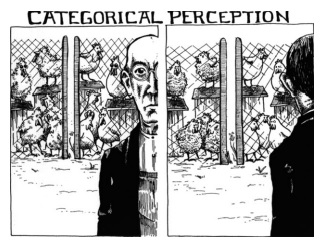[4 minutes read]
My journey in 2018 so far has been nothing but interesting, exciting, scary and have exploded with new learnings, experiences, connections and fond memories.
I have stopped doing work that is not only tiring and boring, it also has sucked the energy out of me with donkey workload in an unhealthy working environment.
I have started to commit to my personal journey and growth in all aspects of my life, consciously.
I have decided to go back to basic and make new friends the old school way, by meeting up, talking, interacting and building solid new connections along the way.
I have also decided to explore as many new skills as I could. Learning a new language, improving my interaction skills with German authorities (I can write a book about this!), getting connected with NGOs that are involved in youth activities, attending functions and meetings in subjects that I have no clues about … to list a few.
All I know in my body and soul, is that I have a plan. I have a vision. I act and follow my intuition knowing where I am going, and what I want to experience. Most importantly, I want to give my experiences, thoughts and knowledge away to anyone who seeks for it, and to those looking for less painful way to reach their life purposes.
Naturally, one of the first steps of any changes we are going to do in our lives, is to tell people you are close with about your new decisions in life. However, the magic, does not happen overnight. People are NOT OK with changes, even if it is not their own. What fascinated me most (and frustrated me sometimes) was the sheer rejection for change. People start to tell you to take a step back and re-evaluate, people starts sharing their failures and the implications of it, people start to give you advice on how you should do things this way and that. People even start to give you an alternative solution that you should be doing, and sometimes, discourage you completely to protect you from doing costly mistakes as they have done before.
It was like going to a battlefield sometimes.
What I loved most about this experience is, the fact that there are so many people out there that truly cares, and watches out for you. I am eternally grateful for that, and I would never change this connection one bit.
But take every advice you have gotten for free, with a pinch of anything salty.
What I realised early on is that, the advices given to me was a collection of true stories. This story, represents they way the story teller has seen and experienced life, and they summarised their pain, frustrations and successes in a unique way in how they perceive and look at the world.
It is mostly not about me at all. That’s my conclusion, influenced by the way I perceive the world.
How exactly does perception plays a part in taking advices? Here are the two important aspects of perception in relation to taking advices:
Perceived Competence
Perceived competence is a self-perception of an individual in their capabilities and ability to control their environment and situation. It is how skilled and effective a person perceives themselves to be in a particular situation.
(https://www.alleydog.com/glossary/definition.php?term=Perceived+Competence)
An advice that comes from someone that has walked the talk may have more impact than one that doesn’t. When an advice is given freely, we tend to look for attributes and compare to the situations, scenarios and other factors are mildly similar to ours, before we take any advice into account.
Categorical Perception
Categorical perception (CP) is the phenomenon by which the categories possessed by an observer influences the observers’ perception. Experimentally, CP is revealed when an observer’s ability to make perceptual discriminations between things is better when those things belong to different categories rather than the same category, controlling for the physical difference between the things.

An illustration of categorical perception.
When an observer looks at objects (chickens) that fall into two or more categories (coops), differences among objects that fall into different categories are exaggerated, and differences among objects that fall into the same category are minimized. Conceived by Robert Goldstone, Made perceptual by Joe Lee.
We tend to perceive our world in terms of the categories that we have formed. Our perceptions are warped such that differences between objects that belong in different categories are accentuated, and differences between objects that fall into the same category are deemphasized.
2009 John Wiley & Sons, Ltd. WIREs Cogn Sci
Categorical perception Robert L. Goldstone∗ and Andrew T. Hendrickson
(https://pdfs.semanticscholar.org/a703/1ba062221cb706d49f0b100a1b1be5773a64.pdf)
Hence, when advice is given, we tend to accentuate or deemphasize the meaning of the advice, based on if we see ourselves in the same category or not.
Same Problem, Different Solutions
Advice you give yourself is always different that the advice you give to others. Why is that? Essentially people want to give you advice as they don’t want you to make the same mistakes as they do. Although the intentions are honourable, you might want to look at the personality bias imposed by the advisor on you.
What should you do when you are given an advice?
Whether an advice is useful or not, it is 100% up to your personal interpretation. Your recipe for success is exclusively yours. Be courageous to explain and discuss with the advisor when any advice is not relevant to you. That will open up to whole set of new advices that might be more relevant to you!
Instead of waiting for advice to be given, studies show that when we proactively ask for advice, the outcome for a solution to your problem is higher. It makes sense as now we are not only ready for taking advice, we most probably are asking someone with the right authority on the subject matter.


